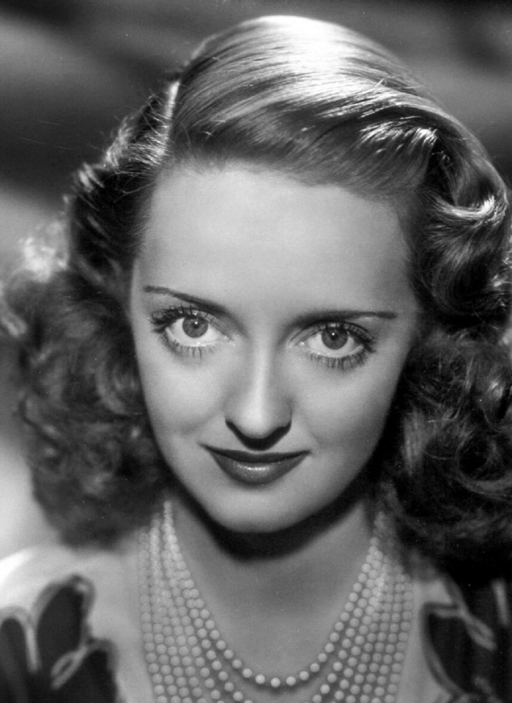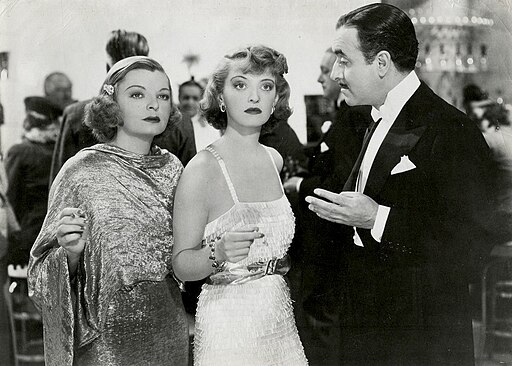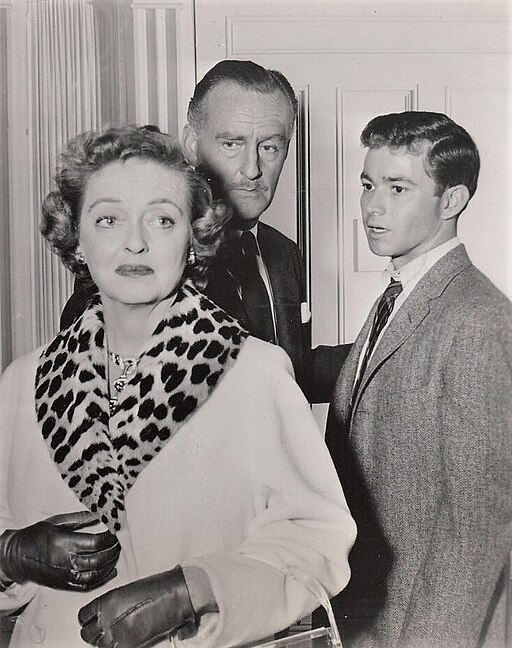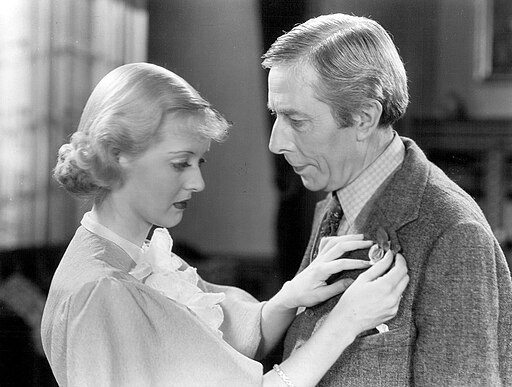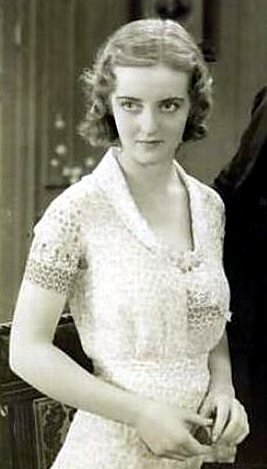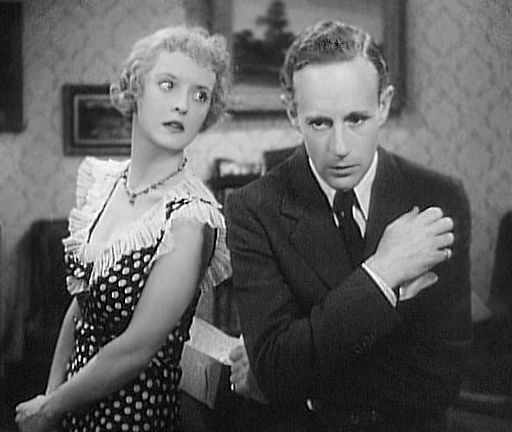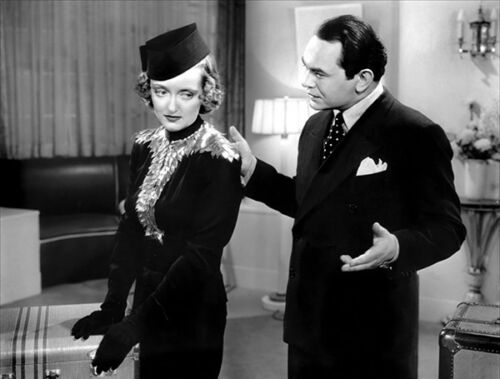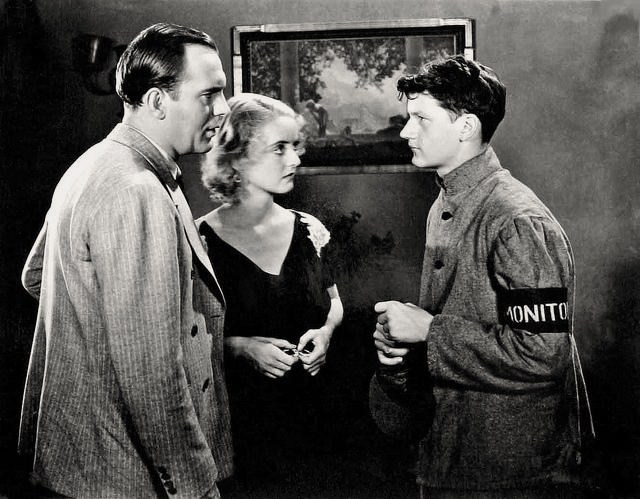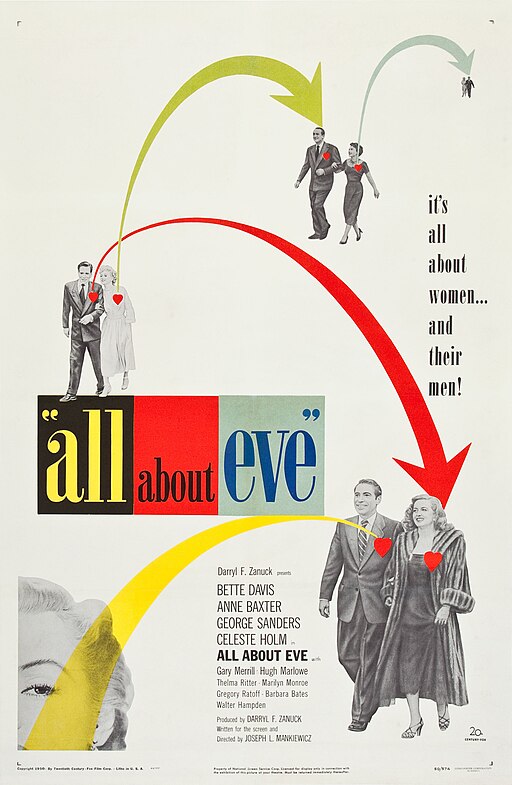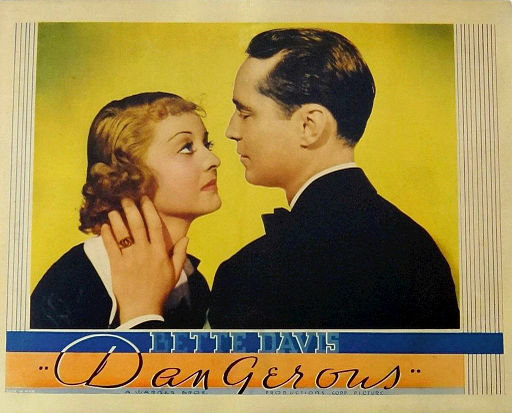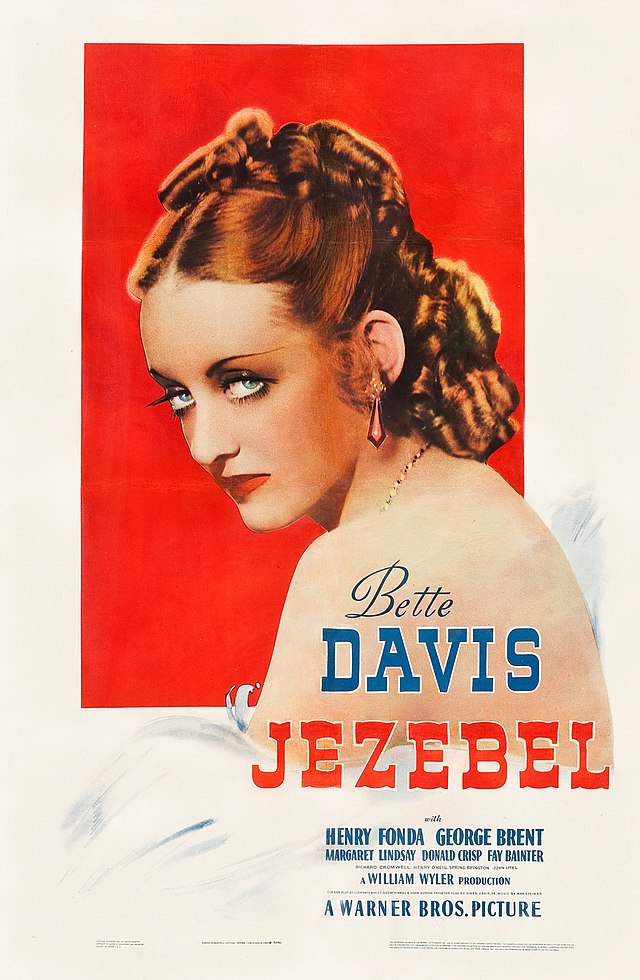Bette Davis
back| Full Name | Ruth Elizabeth Davis |
| Stage Name | Bette Davis |
| Born | April 5, 1908 |
| Birthplace | Lowell, Massachusetts, U.S. |
| Died | October 6, 1989 |
| Buried | Forest Lawn Memorial Park, Hollywood Hills, California, U.S. |
| Married to | Harmon Nelson (1932–1938) - Arthur Farnsworth (1940–1943, his death) - William Grant Sherry (1945–1950) - Gary Merrill (1950–1960) |
| Children | Bette Davis had three children. She adopted a son, Michael Merrill, and a daughter, Margot Merrill. Margot was adopted with her fourth husband, Gary Merrill. She also had a biological daughter, Barbara Davis Sherry (later known as B.D. Hyman), with her third husband, William Grant Sherry. |
| Notable films | Of Human Bondage (1934) - Dangerous (1935) - Jezebel (1938) - Dark Victory (1939) - The Letter (1940) - All About Eve (1950) - Wahetever Happened to Baby Jane (1962) |
Bette Davis
The First Lady of the American Screen
Throughout her career, Bette Davis was known for her forceful and intense performances, often playing complex, unsympathetic characters. She was celebrated for her willingness to play unglamorous roles that challenged the expectations of women's roles in cinema during her era.
Davis was a co-founder of the Hollywood Canteen, and the first female president of the Academy of Motion Picture Arts and Sciences. She has been cited as an influence by many actresses for her pioneering work in film and for her indomitable spirit.
Related
Bette Davis (1908 – 1989)
Biography and Career Overview
Bette Davis, born Ruth Elizabeth Davis on April 5, 1908, in Lowell, Massachusetts, was an actress whose career spanned over 60 years, marked by her intense performances and distinctive character portrayals. Her journey from a young girl in Massachusetts to one of Hollywood's most enduring icons is a tale of ambition, talent, and resilience.
Early Years and Path to Success
Davis was raised with her sister, Barbara, by their mother, Ruthie, after her parents divorced when she was just ten years old. Her mother's determination and work ethic greatly influenced Davis, instilling in her a relentless drive. Davis developed an early interest in acting and attended the Cushing Academy and later John Murray Anderson's Dramatic School in New York City, where she honed her craft.
Her early career was marked by struggles; she made her Broadway debut in 1929 but faced several setbacks before finding success. Her big break came when she moved to Hollywood and signed with Warner Bros. Her performance in "The Man Who Played God" (1932) garnered attention, but it was her role in "Of Human Bondage" (1934) that made her a star, despite initial snubs from the Academy Awards.
Marriages and Personal Life
Davis's personal life was as tumultuous as her on-screen personas. She was married four times: first to Harmon Nelson, then to Arthur Farnsworth, who died tragically, followed by William Grant Sherry, with whom she had her only biological child, B.D. Hyman. Her final marriage was to Gary Merrill, her co-star in "All About Eve," with whom she adopted two children, Michael and Margot. Despite her successes, her marriages were fraught with challenges, ending in divorce, except for her widowed second marriage.
Passions and Contributions
Beyond the screen, Davis was passionate about improving the conditions and recognition of actors in Hollywood. She was instrumental in founding the Hollywood Canteen during World War II, providing entertainment and a place of respite for servicemen. Davis also served as the first female president of the Academy of Motion Picture Arts and Sciences, although her tenure was marked by controversy.
Death and Legacy
Bette Davis's life came to an end on October 6, 1989, in Neuilly-sur-Seine, France, from breast cancer complications. She was 81 years old. Beyond her battle with cancer, Davis had suffered from a stroke and a mastectomy in the years leading up to her death, but she continued to act and make public appearances.
Bette Davis was often referred to by the nickname "The First Lady of the American Screen," a testament to her status as one of the most influential and respected actresses in Hollywood history. This moniker reflects not only her pioneering career achievements but also her strong personality and leadership within the film industry. Davis was known for her formidable presence, both on and off the screen.
A Short Bette Davis Documentary:
Notable Movies Starring Bette Davis:
1930s
- Of Human Bondage (1934): Davis plays Mildred, a manipulative, lower-class waitress who becomes the obsession of a club-footed medical student. Her performance is widely regarded as her breakthrough.
- Dangerous (1935): She stars as Joyce Heath, a troubled actress whose life is a disaster. Davis won her first Academy Award for Best Actress for this role.
- Jezebel (1938): Playing Julie Marsden, a headstrong Southern belle, Davis's performance won her a second Oscar. The film is set in the antebellum South and showcases her character's defiance of social norms.
1940s
- The Letter (1940): Davis is Leslie Crosbie, a woman who kills a man and claims self-defense, but a letter she wrote suggests otherwise. The film is a gripping drama of deceit and betrayal.
- Now, Voyager (1942): As Charlotte Vale, a repressed woman who undergoes a transformation and embarks on a love affair, Davis delivers one of her most memorable performances.
- All About Eve (1950): In this iconic role, Davis plays Margo Channing, an aging Broadway star facing challenges from an ambitious young fan. The film is a sharp commentary on fame, aging, and betrayal.
1950s
- All About Eve (1950): Continuing her success into the 1950s, this film is a career highlight and a defining role for Davis, offering a biting look at the theater world.
- The Star (1952): Davis plays Margaret Elliot, a washed-up actress struggling to revive her career and personal life, reflecting the struggles many actors face as they age.
1960s
- Whatever Happened to Baby Jane? (1962): Co-starring with Joan Crawford, Davis plays a former child star who torments her disabled sister in a decaying Hollywood mansion. The film became a cult classic and revived her career.
Bette Davis Eye Color:
Bette Davis was renowned for her striking eyes, which were one of her most distinctive and expressive features. Her eyes were famously blue, a trait that was not only central to her physical allure but also significantly contributed to her powerful screen presence. Davis's ability to convey deep emotion and nuanced character traits through her gaze was legendary, earning her eyes a place in Hollywood lore.
Her eyes were so compelling that they inspired the popular song "Bette Davis Eyes," performed by Kim Carnes. The song, which became a hit in the 1980s, celebrates the magnetic and alluring quality of Davis's gaze, suggesting that her eyes were captivating, seductive, and could "play you like a song." The lyrics reflect the public's fascination with Davis's eyes, emphasizing their impact on her audience and her ability to express complex emotions and intentions through her look alone.
Davis's eyes were not only a key aspect of her physical appearance but also an integral part of her acting toolkit, allowing her to communicate with the audience directly and profoundly without the need for words.
The Intense Acting Style of Bette Davis:
Bette Davis's acting style was distinguished by its intensity, versatility, and a profound emotional depth, which set her apart from her contemporaries and made her one of the most respected and influential actresses in the history of cinema. Her approach to acting was marked by several key characteristics:
Emotional Authenticity
Davis was known for her ability to convey complex emotions authentically and powerfully on screen. She could transition seamlessly from vulnerability to strength, imbuing her characters with a sense of realness and relatability. Her performances often left audiences feeling a deep connection to her characters, regardless of their moral ambiguity.
Eye Acting
One of Davis's most notable physical traits was her expressive eyes, which she used to great effect in her performances. She could communicate her character's thoughts and feelings with a mere glance, earning her the nickname "The Girl with the Enormous Eyes." This ability to speak volumes without words was a hallmark of her acting style and contributed significantly to her on-screen presence.
Strong Characterization
Davis had a penchant for playing strong, independent, and often flawed women. She was unafraid to portray unsympathetic or unglamorous roles, challenging the norms and expectations of women's roles in Hollywood at the time. Her characters were complex and multifaceted, often facing moral dilemmas or personal struggles, which she portrayed with depth and nuance.
Vocal Mastery
Davis's voice was another powerful tool in her acting arsenal. She could modulate her voice to fit the mood of the scene or the personality of her character, using it to convey a wide range of emotions, from seductive whispers to commanding shouts. Her distinctive cadence and intonation added layers to her performances, enhancing her character's believability.
Preparation and Method
Davis was known for her meticulous preparation for roles, studying her characters intensely to understand their motivations and backgrounds. She was a pioneer in adopting a method-like approach to her craft, immersing herself in her characters to deliver performances that were deeply felt and thoroughly convincing.
Adaptability
Throughout her career, Davis demonstrated remarkable versatility, moving effortlessly between genres—from drama and romance to horror and comedy. This adaptability allowed her to maintain a long and varied career, consistently delivering compelling performances across a broad spectrum of films.
Legacy
Davis's acting style influenced generations of actors, setting a standard for emotional depth and complexity in film performances. Her commitment to her craft and her willingness to take on challenging roles broke new ground for actresses in Hollywood, expanding the types of characters women could play on screen and how they were portrayed.
Memorable Quotes from Bette Davis:
- On perseverance and determination:
"Attempt the impossible in order to improve your work."
- On her iconic eyes:
"I'd love to kiss you, but I just washed my hair."
- Regarding her career and choice of roles:
"I often think that a slightly exposed shoulder emerging from a long satin nightgown packs more sex than two naked bodies in bed."
- On aging and Hollywood:
"Old age is no place for sissies."
- Regarding personal growth:
"The key to life is accepting challenges. Once someone stops doing this, he's dead."
- On the art of film:
"Acting should be bigger than life. Scripts should be bigger than life. It should all be bigger than life."
- About her reputation for being difficult:
"I am just too much."
- On her approach to life and work:
"Without wonder and insight, acting is just a business. With it, it becomes creation."
- Regarding rivalry and competition in Hollywood:
"Fasten your seatbelts, it's going to be a bumpy night." (from "All About Eve," 1950)
- On her professional philosophy:
"To fulfill a dream, to be allowed to sweat over lonely labor, to be given a chance to create, is the meat and potatoes of life. The money is the gravy."
Awards and Recognition:
Academy Awards (Oscars)
- Best Actress Wins:
- 1935: "Dangerous" as Joyce Heath
- 1938: "Jezebel" as Julie Marsden
- Best Actress Nominations:
- 1939: "Dark Victory" as Judith Traherne
- 1940: "The Letter" as Leslie Crosbie
- 1941: "The Little Foxes" as Regina Giddens
- 1942: "Now, Voyager" as Charlotte Vale
- 1944: "Mr. Skeffington" as Fanny Trellis Skeffington
- 1950: "All About Eve" as Margo Channing
- 1952: "The Star" as Margaret Elliot
- 1962: "What Ever Happened to Baby Jane?" as Baby Jane Hudson
Emmy Awards
- Nominations:
- 1963: Outstanding Single Performance by an Actress in a Leading Role for "The Decorator" (a pilot that was not picked up)
- 1979: Outstanding Lead Actress in a Limited Series or a Special for "Strangers: The Story of a Mother and Daughter"
Cannes Film Festival
- Best Actress Award:
- 1951: For her role in "All About Eve"
Golden Globe Awards
- Best Actress in a Drama Win:
- 1950: "All About Eve"
- Nominations:
- 1952: Best Actress in a Motion Picture – Drama for "The Star"
- 1956: Best Actress in a Motion Picture – Drama for "The Virgin Queen"
- 1963: Best Actress in a Motion Picture – Drama for "What Ever Happened to Baby Jane?"
BAFTA Awards
- Nominations:
- 1950: Best Foreign Actress for "All About Eve"
- 1952: Best Foreign Actress for "Another Man's Poison"
Venice Film Festival
- Volpi Cup for Best Actress:
- 1937: For her work in cinema, recognized at the festival
American Film Institute
- Lifetime Achievement Award:
- 1977: AFI Life Achievement Award, recognizing her contribution to enriching American culture through motion pictures
Hollywood Walk of Fame
- Davis received a star on the Hollywood Walk of Fame for her contributions to the film industry, located at 6284 Hollywood Blvd.
Other Honors
- Davis was the first woman to receive the Lifetime Achievement Award from the Film Society of Lincoln Center.
- She was also the first female president of the Academy of Motion Picture Arts and Sciences.
- In 1981, she was awarded the French Legion of Honor for her film work.
List of Movies featuring Bette Davis:
1930s
- The Bad Sister (1931)
- Seed (1931)
- Waterloo Bridge (1931)
- The Menace (1932)
- Hell's House (1932)
- The Dark Horse (1932)
- The Cabin in the Cotton (1932)
- Three on a Match (1932)
- 20,000 Years in Sing Sing (1932)
- Parachute Jumper (1933)
- The Working Man (1933)
- Ex-Lady (1933)
- Bureau of Missing Persons (1933)
- The Big Shakedown (1934)
- Fashions of 1934 (1934)
- Jimmy the Gent (1934)
- Of Human Bondage (1934)
- Fog Over Frisco (1934)
- Housewife (1934)
- Bordertown (1935)
- The Girl from 10th Avenue (1935)
- Special Agent (1935)
- Dangerous (1935)
- The Petrified Forest (1936)
- The Golden Arrow (1936)
- Satan Met a Lady (1936)
- Marked Woman (1937)
- Kid Galahad (1937)
- That Certain Woman (1937)
- It's Love I'm After (1937)
- Jezebel (1938)
- The Sisters (1938)
- Dark Victory (1939)
- Juarez (1939)
- The Old Maid (1939)
- Essex and Elizabeth (1939)
- All This, and Heaven Too (1940)
1940s
- The Letter (1940)
- The Great Lie (1941)
- The Bride Came C.O.D. (1941)
- The Little Foxes (1941)
- Now, Voyager (1942)
- In This Our Life (1942)
- Watch on the Rhine (1943)
- Old Acquaintance (1943)
- Mr. Skeffington (1944)
- The Corn Is Green (1945)
- A Stolen Life (1946)
- Deception (1946)
- Winter Meeting (1948)
- Beyond the Forest (1949)
1950s
- All About Eve (1950)
- Payment on Demand (1951)
- The Star (1952)
- Phone Call from a Stranger (1952)
- The Virgin Queen (1955)
- Storm Center (1956)
- The Catered Affair (1956)
- John Paul Jones (1959)
1960s
- Pocketful of Miracles (1961)
- What Ever Happened to Baby Jane? (1962)
- The Empty Canvas (1963)
- Dead Ringer (1964)
- Where Love Has Gone (1964)
- Hush...Hush, Sweet Charlotte (1964)
- The Nanny (1965)
- The Anniversary (1968)
- Connecting Rooms (1970)
1970s and 1980s
- Bunny O'Hare (1971)
- Burnt Offerings (1976)
- The Whales of August (1987)

